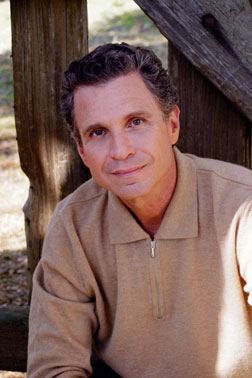|
|
|
Grace Versus Happiness
by Alberto Villoldo, Ph.D.

When we’re in the state of grace, we’re fully animated by life. It’s what the Chinese call “awakened chi,” or what makes us bound out of bed in the morning and allows us to overcome the obstacles of life. When we’ve fallen from it, however, greeting the day is a chore, and everyday life is a burden to be shouldered as best we can.
Even though our soul seeks to live in grace, we usually only take note of it when we feel its lack—for example, when our life force is exhausted from an abusive marriage or work situation, or when we’re pressured to compromise our dreams by following a course in life that’s expected of us but is far from our heart’s calling. It’s then that we become addicted to quick hits of that elusive elixir known as “happiness.”
Most of us confuse grace and happiness, but the former is profound and transformative, while the latter is fleeting and causal. In Western industrial society, we’re at the mercy of the alignment of favorable circumstances for happiness, which is far from the innate sense of well-being we know as grace. We’re so hooked on this notion of happiness being brought about by events or circumstances that we’re perplexed by the contentment of “simple” or “poor” people—those with no more than the food in their belly, a roof over their head, and the good health of their children and loved ones, for instance.
Research shows that the variance in happiness between those who are struggling to find their next meal and those who are able to provide for their basic needs (such as food and shelter) is quite substantial, yet there’s little difference between those who have their basic needs met and those who are extremely wealthy. Sure, the expensive car or fancy dress works for a while, but we adapt quite quickly and our latest toy becomes the new norm—thus, we’re thrown back into a state of desire. To paraphrase the words of Aldous Huxley, we make the ceiling of yesterday’s desire the floor of today’s expectations.
Just as Chinese medicine looks upon an obese person as someone who’s actually starving to death, desperately trying to fill a hole in their being with food, we can also think of the compulsive spenders among us as frantically trying to purchase a cure for a psychological or spiritual void in our lives. By lacking a sense of inner peace, we stumble through the motions of life without ever truly living in the moment, and we try to satiate uncomfortable feelings by throwing money away, overeating, taking on serial sexual partners, or working obsessively. Or we may fall into substance abuse, which provides only fleeting moments of happiness that vanish quickly and leave us feeling even more depleted.
People dabble in narcotics for the sensation of getting high, but when dependency sets in, that high is replaced by a pernicious sense of deprivation. We call an addiction “having a monkey on our back” for good reason: When humans fall prey to the instincts of the monkey brain—fear, feeding, fighting, and fornication—our existence becomes a fight for survival, making it impossible to live in grace. The two are mutually exclusive. In grace, you’re free to be like “the lilies of the field” who need nothing, or those who “walk in the valley of the shadow of death and fear no evil”… but momentary pleasures can’t and won’t bring us this state. After all, what better image of grace is there than a baby’s smile? Babies don’t strive for happiness or brace themselves against sadness, they just are. That’s grace.
Alberto Villoldo, Ph.D., author of numerous best-selling books, is a psychologist and medical anthropologist who has studied the healing practices of the Amazon and the Andes for more than 25 years. He founded the Biological Self-Regulation Laboratory at San Francisco State University, and he directs The Four Winds Society, where he instructs individuals throughout the world in the practice of energy medicine and soul retrieval. Website: www.thefourwinds.com.
Exerpted with permission from Mending the Past and Healing the Future with Soul Retrieval. Hay House © 2005. www.hayhouse.com.
|

